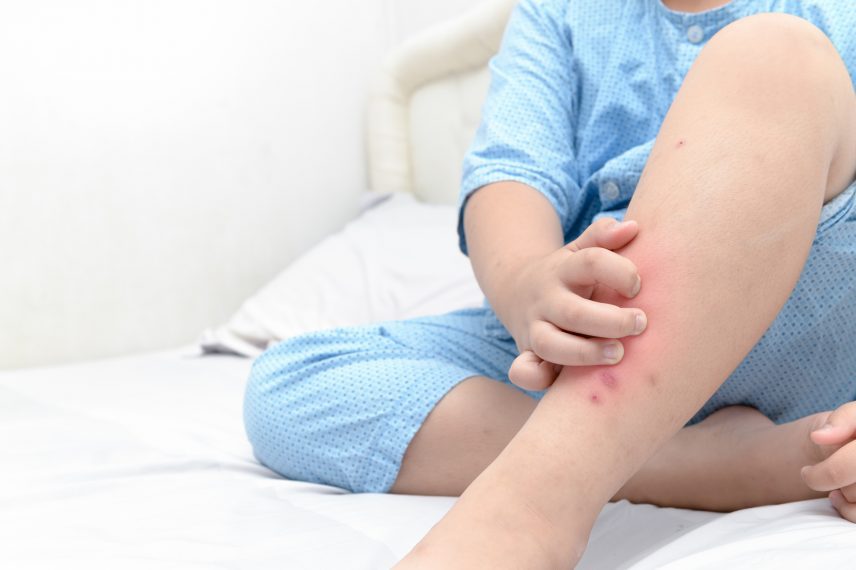You’ve probably heard that spider bites are rare. While this may be true for the most part, spider bites do happen from time to time.
Most spiders will do everything they can to avoid human contact. After all, you’ve heard the common phrase, “Bugs are much more afraid of you than you are of them.” However, many people are unaware of what to do if they do experience a spider bite.
Some spider bites from non-venomous spiders only cause mild to moderate itching and irritation, while other venomous spiders can cause severe or sometimes even fatal reactions. This is why it’s important to know the exact measures you should take if you suspect that you were bit by a spider.
Keep reading to learn how to properly treat a spider bite.
Identify the Bite
One of the first things you’ll need to do if you suspect that you were bitten by a spider is to identify the bite. You may think that you were bitten by a spider when it could be another type of insect.
In bites from non-venomous spiders, it may be difficult to tell the difference between the bite and the bite of another insect. However, one giveaway that you can look for is two little marks in the bite. These are from the spider’s fangs.
If your bite is from a non-venomous spider such as a brown widow spider or a jumping spider, it will usually only cause a very mild reaction.
The two most venomous spider bites you need to be aware of are black widows and brown recluses.
If your bite was from a black widow it will have two prominent marks in the bite with painful swelling and redness. If left untreated, you may experience symptoms such as abdominal pain, fever, chills, nausea, and difficulty breathing.
If your bite was from a brown recluse, the puncture marks may be less noticeable given the size of the spider’s fangs. However, if untreated you may develop a red or purple ulcer on the bite like a bullseye. You may also experience muscle pain, fever, chills, nausea, and difficulty breathing.
Non-Venomous Spider Bites
Mild, non-venomous spider bites do not typically require medical care and can usually be treated at home. Although, if you’re unsure, never hesitate to get a doctor’s opinion.
To treat a non-venomous spider bite, you’ll want to first wash the bite with soap and water. This will help prevent the bite from getting infected.
You may also want to use an antibiotic cream to really ensure that the bite does not get infected.
Next, you’ll want to use an ice pack or some other type of cold compress to take down the swelling or pain of the bite. Applying analgesic cream also helps with the pain of the bite as well as over-the-counter NSAID mediations for inflammation.
Be sure to also elevate the area of the bite to take down swelling and inflammation.
If you experience any itching, you may also benefit from using an antihistamine cream or taking an oral antihistamine like Claritin or Benadryl.
Finally, you may choose to wrap up your spider bite with a bandage to avoid scratching and protect it.
Remember, even if your spider bite seems mild, it’s always important to monitor it for infections.
Venomous Spider Bites
If you suspect that your spider bite is indeed venomous, be sure to seek medical attention ASAP. The sooner you seek medical attention, the less likely you are to develop severe reactions to the bite.
After your doctor determines the severity and duration of the bite, you will be treated accordingly.
If you are suffering from severe side effects, your doctor may inject antivenom. This will protect your body against the venom the spider put into you.
You will also likely be treated with antibiotics to prevent infection. If you haven’t received a tetanus shot in the past ten years, you will likely be given one as well.
To help with pain, swelling, and inflammation, your doctors will often provide certain pain medications. Examples include NSAIDs, corticosteroids, or topical creams. In severe cases, narcotic pain medication may be prescribed.
If the spider bite caused any tissue damage, you may undergo hyperbaric oxygen therapy. This helps deliver oxygen to the spider bite wound.
If there is dead tissue left over from the spider bite, surgery may sometimes be advised.
Home Remedies for Spider Bites
If you’re a person who prefers home remedies, there are a few great options to naturally treat your spider bite. Keep in mind that this applies to mild bites. Venomous spider bites should always receive immediate medical care.
Here are some examples of home remedies for your spider bite:
- Chamomile- May help with itching and irritation
- Baking soda- May aid in swelling, pain, and itching
- Aloe Vera- May reduce itching and swelling
- Lavender oil- May soothe bite and reduce pain
- Witch hazel- May reduce itching and inflammation
- Rose oil- May help with pain
Treating Your Spider Bite
This guide taught you everything you need to know about treating your spider bite. Spider bites may be rare, but knowing the proper steps to take will help you avoid severe or dangerous reactions.
Is your home currently facing insect infestation? At Pointe Pest Control we go above and beyond to provide the best home pest control. We offer services in a variety of areas in Pennsylvania, New Jersey, and Deleware.
If you’re in need of pest management for your home, contact us today.


